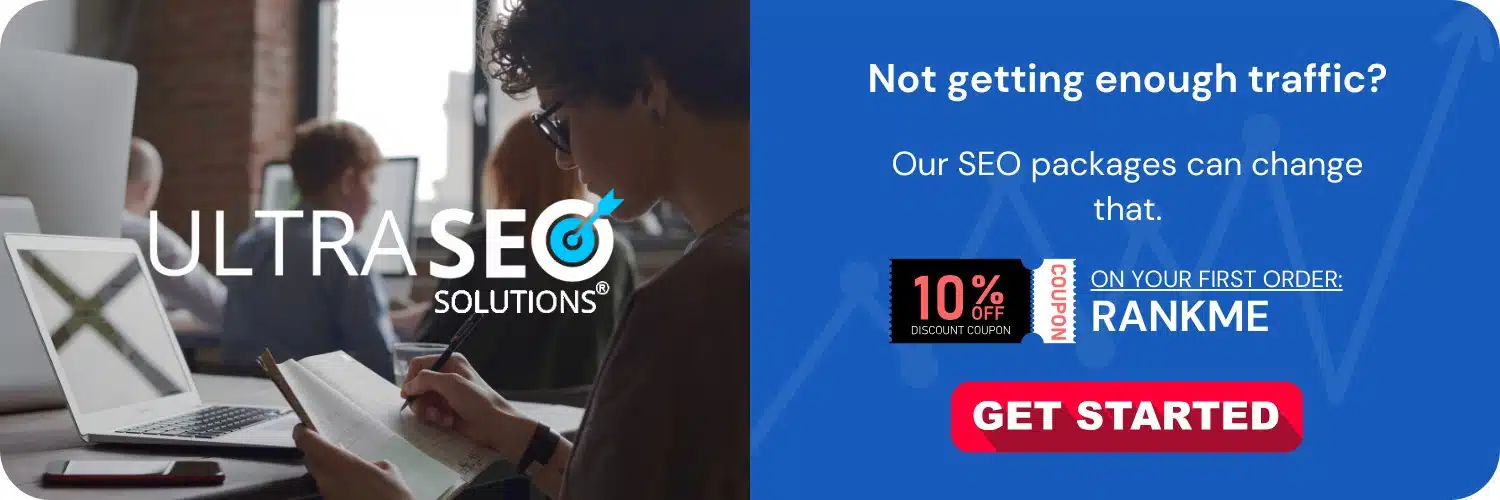
For a historical research website, the best SEO tips involve creating high-quality, authoritative content, leveraging unique historical keywords for better visibility, optimizing for on-page SEO with structured data, and building strong backlinks from reputable sources. Ultimately, the goal is to provide enormous value to your audience by sharing rich historical insights that are both accurate and engaging.
Understand Your Audience and Their Search Intent
Before diving deep into SEO strategies, you must first understand your audience. Historical research enthusiasts value accuracy, detail, and context. Tailor your content to meet these needs while ensuring that it aligns with their search intent. Whether visitors are looking for historical timelines, in-depth analyses, or biographical information, make sure your content is structured to provide answers efficiently.
Focus on Creating High-Quality Content
Research and Accuracy
For a historical research website, content is king. However, it is not just any content; it needs to be well-researched and accurate. Any historical information you provide must be backed by credible sources. Accuracy strengthens your website’s reliability and encourages other reputable sites to link to your content, which improves your SEO.
Engaging Storytelling
While facts are fundamental, the delivery can make a significant difference. Engage your readers with compelling storytelling to make historical facts resonate more profoundly. This approach can reduce bounce rates and increase the time visitors spend on your webpage—both signals to search engines that your content is valuable.
Optimize for On-Page SEO
Title Tags, Meta Descriptions, and Headings
The basics of on-page SEO involve optimizing your title tags, meta descriptions, and headings. Use descriptive titles that incorporate your main keywords. Craft meta descriptions that serve as compelling summaries of your content, encouraging clicks from search engine result pages. Use headings to break up your content into digestible sections, making it easier for both users and search engine crawlers to navigate your site.
Image Optimization
Historical research sites could benefit significantly from the use of relevant imagery. Ensure that all images have descriptive, keyword-rich alt text and are compressed for fast loading. Besides lending a visual aid to your content, well-optimized images can also drive traffic through image search queries.
Structured Data Markup
Use schema markup to provide search engines with detailed information about the context of your content. For historical events or personalities, there are specific schemas, like ‘Event’ and ‘Person’, that can enhance the display of your pages in search results and potentially lead to rich snippets.
Keywords Research and Usage
Keywords are the pillars of SEO, and the historical niche has an array of unique keywords that may not be highly competitive. Conduct thorough keyword research using tools like Google’s Keyword Planner or more specialized services to identify terms that your audience uses to find historical content.
- Consider long-tail keywords that are more specific and relate to niche topics within history.
- Use keywords strategically in your content, titles, and meta descriptions but avoid keyword stuffing.
- Remember to use synonyms and variations of your primary keywords to cover a broader range of search queries.
Link Building Strategies
Backlinks from Authoritative Sources
Relevant backlinks from trusted and authoritative websites within the historical or educational sectors can significantly improve your SEO. Strive to get your content referenced by educational institutions, history blogs, and online encyclopedias.
Internal Linking
Don’t overlook the power of internal linking to help search engines discover new pages and understand the structure and hierarchy of your content. Internal links guide visitors to related content, keeping them engaged and reducing bounce rates.
User Experience and Mobile Optimization
User experience (UX) affects SEO rankings because search engines want to promote sites that users find helpful and easy to navigate. Historical websites, with their potential for heavy text content, must be especially attentive to UX.
Ensure your design is clean and facilitates content consumption. Furthermore, with more searches happening on mobile devices, your site must be responsive and mobile-friendly to accommodate all users and prevent ranking penalties from search engines.
Utilize Social Media and Content Sharing Platforms
Social media can help increase the visibility of your historical content. While social signals may not directly contribute to SEO rankings, social media can lead to more traffic and backlinks, which do impact SEO. Leverage platforms where your audience might congregate, like history forums, Reddit communities, or Twitter, to share your content and drive engagement.
Content Updates and Historical Accuracy
Keep your content up-to-date with the latest historical research and perspectives. Ensuring that your information remains accurate and current signals to search engines that your site remains a valuable resource over time.
Finishing Thoughts
SEO for a historical research website requires a confluence of detailed content creation, strategic keyword usage, strict adherence to on-page technical aspects, and an unwavering commitment to user experience. By prioritizing these elements and building authoritative backlinks, your site can become a go-to resource for historical information. Remember, your ultimate goal is not just to rank well in search engines but to provide a rich, educational, and seamless experience for your audience, which in turn, benefits your SEO efforts. Through patience and dedication to these best practices, your historical research website can achieve the visibility and recognition it deserves.
Frequently Asked Questions
What basic steps should I take to optimize my historical research website for search engines?
To optimize your historical research website for search engines, start with the basics: ensure your site has a clear structure, use descriptive and keyword-rich titles and headings, and create high-quality content of interest to your audience. Provide meta descriptions for your pages, optimize your images with descriptive alt tags, and make sure your website is mobile-responsive. Also, use internal linking to help search engines understand your site structure.
How important is keyword research for a historical research website SEO?
Keyword research is critical for historical research website SEO. Identifying and integrating the right keywords can help your website rank higher for relevant search queries. Focus on terms that your audience is likely to use when searching for historical information, events, figures, or periods that your website covers. Use keyword research tools to find keywords with good search volume and manageable competition, and remember to include long-tail keywords that are more specific to your niche.
What type of content should I focus on to improve my website’s search engine visibility?
Create high-quality, authoritative content that addresses the interests and questions of your audience. This could include detailed articles, historical analyses, primary source databases, timelines, and biographical sketches. Regularly update your website with fresh content and consider featuring multimedia elements like images, videos, and interactive timelines to make your content more engaging and shareable, helping to increase its visibility.
Are backlinks important for SEO, and if so, how do I acquire them for my historical research website?
Backlinks are crucial for SEO, as they signal to search engines that other websites consider your content valuable and authoritative. To acquire backlinks for your historical research website, you can reach out to other history enthusiasts, bloggers, and academic institutions to share your content. Writing guest posts for other reputable history or educational websites can also earn you backlinks. Furthermore, creating high-quality content that serves as a resource can naturally attract backlinks.
What role does site speed play in SEO for a historical research website?
Site speed is a significant ranking factor in SEO. A faster website provides a better user experience, which search engines like Google take into account when ranking sites. Optimize your site speed by compressing images, minimizing HTTP requests, utilizing browser caching, and choosing a fast web hosting provider. Monitoring your site speed through tools like Google PageSpeed Insights can help you identify and fix issues that may be slowing down your site.
How can I make my historical research website more mobile-friendly?
To make your historical research website more mobile-friendly, ensure your site uses a responsive design that adapts to different screen sizes. Avoid using Flash, utilize large and readable fonts, and make sure buttons and links are easy to click on a small screen. Also, consider the mobile user experience when designing your site’s layout and navigation to ensure it is intuitive and accessible on mobile devices.
Why is it important to include metadata on my historical research website?
Metadata provides search engines with concise information about the content of your pages. This includes titles and meta descriptions, which appear in search results. A compelling title and meta description can improve your click-through rate, which can positively affect your SEO ranking. Additionally, structured metadata, such as Schema.org markup, can enhance your search listings with rich snippets that attract attention and provide users with more information at a glance.
Should I integrate social media into my historical research website for SEO purposes?
Integrating social media into your historical research website can help improve your SEO through increased content visibility and potential backlinks. Sharing your content on social media platforms can lead to more engagement, more shares, and a wider audience, which can indirectly boost your search rankings. Also, social media profiles and posts can appear in search results, providing additional opportunities to connect with your target audience.
How can I track the success of my SEO efforts on my historical research website?
To track the success of your SEO efforts, use tools like Google Analytics to monitor your website traffic, user behavior, and conversion rates. Look at metrics such as organic search traffic, bounce rate, and time on site to gauge how well your SEO strategies are performing. Additionally, use Google Search Console to track your search rankings, the number of impressions, click-through rates, and to identify any crawl errors or issues that need to be addressed.






